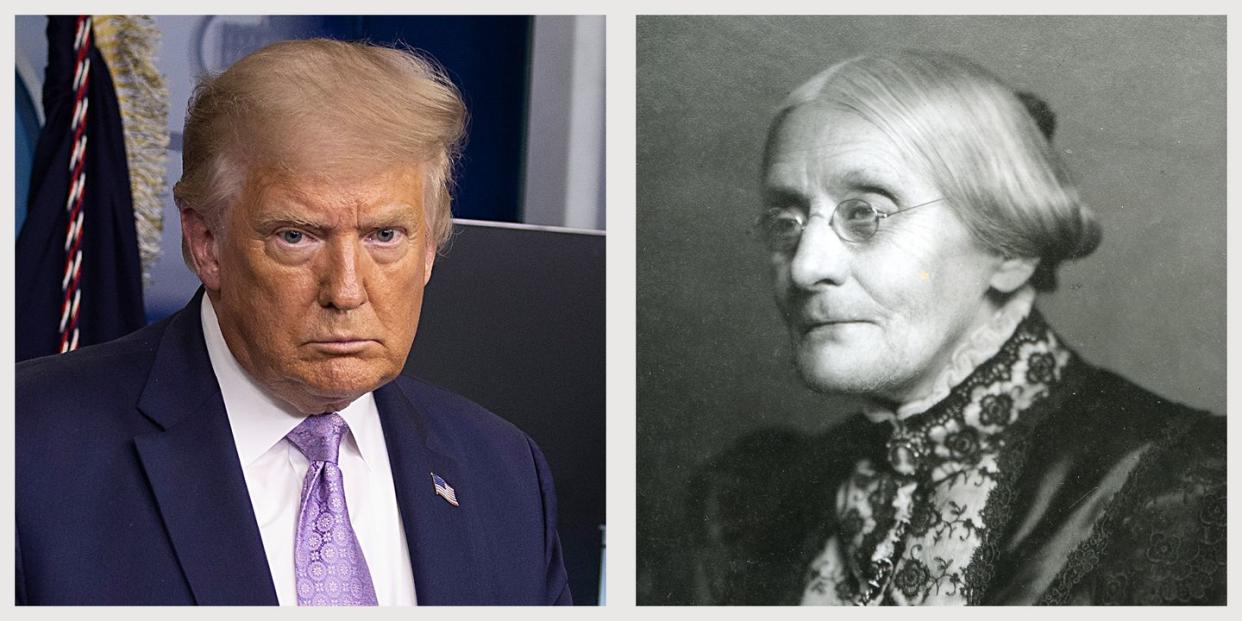The Susan B. Anthony Museum Rejects President Trump's Posthumous Pardon

Earlier this week, as the nation celebrated the 100th anniversary of the 19th amendment, President Donald Trump made an unexpected announcement: he was officially pardoning suffragist Susan B. Anthony, who had been arrested in 1872 for voting when it was illegal for women to do so.
"She was never pardoned. Did you know that? She was never pardoned," Trump said. "What took so long?"
Critics, including New York Lieutenant Governor Kathy Hochul, quickly pointed out that as Anthony voted in protest, knowing it was illegal, she may never have wanted a pardon. Others noted the hypocrisy of Trump celebrating voter enfranchisement while simultaneously attacking mail-in voting amid a pandemic, going so far as to say that universal mail-in voting would result in "a rigged election" or an indeterminate outcome.
For her part, Deborah L. Hughes, the executive director of the Susan B. Anthony Museum and House issued a statement condemning Trump's pardon, saying that the move threatened to "validate" Anthony's 1872 arrest. She went on to propose another way to honor Anthony's legacy: to stand against voter suppression in all its forms, and back the Equal Rights Amendment. "Advocacy for human rights for all would be splendid," she added. Read Hughes's words in full below.
Anthony wrote in her diary in 1873 that her trial for voting was “The greatest outrage History ever witnessed.” She was not allowed to speak as a witness in her own defense, because she was a woman. At the conclusion of arguments, Judge Hunt dismissed the jury and pronounced her guilty. She was outraged to be denied a trial by jury. She proclaimed, “I shall never pay a dollar of your unjust penalty.” To pay would have been to validate the proceedings. To pardon Susan B. Anthony does the same.
If one wants to honor Susan B. Anthony today, a clear stance against any form of voter suppression would be welcome. Enforcement and expansion of the Voting Rights Act of 1965 would be celebrated, we must assure that states respect the 14th, 15th, and 19th Amendments to the United States Constitution. Support for the Equal Rights Amendment would be well received. Advocacy for human rights for all would be splendid. Anthony was also a strong proponent of sex education, fair labor practices, excellent public education, equal pay for equal work, and elimination of all forms of discrimination.
As the National Historic Landmark and Museum that has been interpreting her life and work for seventy-five years, we would be delighted to share more.
You Might Also Like
